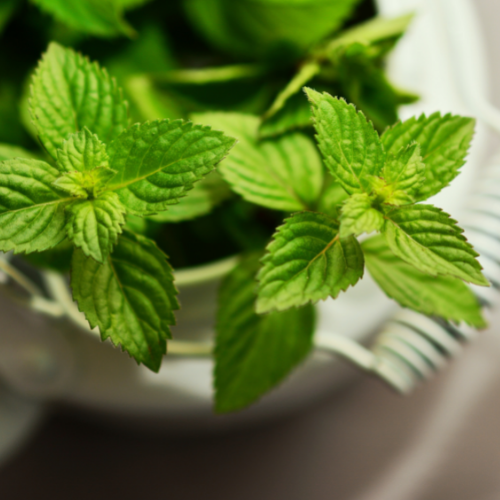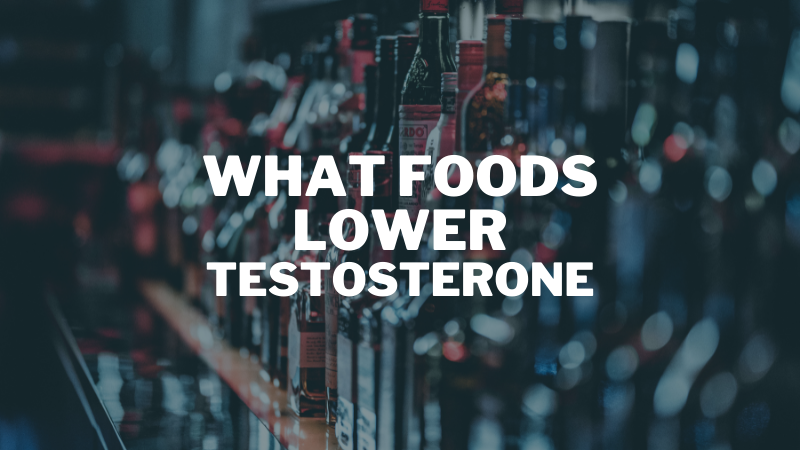We posted an article recently about which foods increase testosterone, and a few people have wondered about the opposite: which foods might be decreasing our testosterone. We put together this list after some research not only into the foods themselves, but what about them is lowering the total T in our bodies.
Keep in mind that these foods are avoidable. Just because they may be in your diet now is no reason to keep them there. If you really enjoy some of these foods, and want to offset their possible effects, check out the other list, or even look into some of our best rated testosterone boosters.
If you’re not sure if some of these foods have been affecting your total T, check out an article I wrote about how to tell if your testosterone is low—some of the losses might surprise you.
Active Testosterone Killers
There are a few foods we found that actually attack the mechanisms that produce and metabolize testosterone in our bodies. These findings have been studied and published in medical journals, so look out for them.
Mint
Both spearmint and peppermint are actively harmful to tissues in the testes. One report we read actually called the effects “toxic.” Not only were the testosterone levels lower in the subjects who took spearmint and peppermint, but there have been biopsies of the testicular tissue to support the mechanism for lowering the testosterone.
Both Mentha spicata labiatae (spearmint) and Mentha piperita labiatae (peppermint) reduced the tubular diameter of testicular tissue and arrested the development of those tissues. Not good.

Alcohol
We’re not talking about a beer or two after a good hike, or even a few cocktails. But heavy and frequent alcohol consumption plays absolute havoc with our brain chemistry, affecting everything from our judgment to serotonin and dopamine levels.
Key to this discussion, it also interrupts the signals from the main hormone sectors of the brain, the pituitary and the hypothalamus. It also disrupts the signaling to and from the testes. In short, alcohol can short circuit our ability to make any testosterone, at all.

Licorice Root
Not to be confused with the red candy we see at the movie theater, we’re talking about the anise-like flavored root found in many liqueurs and traditional health tinctures. Licorice root blocks two of the most important compounds in our bodies for metabolizing steroids.
In fact, licorice root is so effective at blocking the body from using testosterone that it is considered therapy for two health conditions in women that result from high testosterone. If you want to keep your T-levels up, don’t take an herb that’s used as therapy for destroying it others.

Testosterone Threats
The next few foods aren’t active enemies of testosterone, but they react in our body chemistry to create a harmful environment for it. In all cases it’s because it stimulates our bodies to create and use other hormones, which testosterone must then compete with, and the T usually loses.
Cows Milk
Really attacking our morning breakfast, it turns out that cows milk can have a significant impact on our testosterone levels. This is a result of the high levels of estrogens in the milk itself.
Before anyone goes on a tangent about soy in the cow’s feed or if the cow was treated with hormones, this problem is endemic to all animal milks. That is to say, it is a product of a mammalian female, and will have estrogen in it no matter what. These estrogens are absorbed during ingestion of the milk, and this absorption suppresses gonadotropin.
The effects are serious enough that one study suggested it may be harmful to development of prepubescent children.

Soy
This one has gone around the block so many times that many of you already know it. Soy products contain a micronutrient called phytoestrogen. Breaking that word down, it means “plant estrogen,” and it’s exactly what it sounds like: the female hormone of plants.
In our bodies, over consumption of soy can result in a hormone imbalance, leaving us without proper testosterone.

Saturated Animal Fats
Highly specific to land mammals, really, these fats are most common in pork and cows. Unlike saturated fats in fish or from some plants, these fats will result in arterial blockage, slowing heart rate, and increased cortisol. All of which lower testosterone production.

Processed Grains
The mechanism behind how processed grains interrupt testosterone production and reception is pretty straightforward, but it isn’t direct. That is to say, bread isn’t killing your testosterone, and neither is rice, or even sugars. But how our bodies process those processed carbs will result in lower testosterone.
For example, when we eat white rice, our bodies metabolize it as sugar right away. This triggers the release of enzymes and hormones that make us feel good, full, and energetic. Over time, with frequent intake of that white rice, our body will turn more and more away from producing testosterone to increase muscle and protein metabolism for the same effects.
In short, processed foods and carbs turn our bodies away from protein and testosterone, and toward cortisol and dopamine. Common foods to look out for are usually foods we should be avoiding anyway:
- White breads.
- White rice.
- Refined sugars.
- Potatoes.
- Excess sweet fruits.

Conclusion
If you’ve been feeling more and more sluggish as the years have gone by, it might be because of lower testosterone resulting from age, but some of it very well could be diet. Some of these foods we covered are sneaky, and they actively target the processes by which we produce testosterone. All of them should be easily avoided, or at least limited in our diets.
FAQs
No, but the good news is that some evidence supports fermented soy products being better. That means you’ll probably be okay with soy sauce, miso, and other products. Just stay away from the soy milk.
Some of them can, yes. But it’s important to match the supplement with the cause. I wrote in-depth explanations of testosterone boosters, so you should check your supplement label against the research.
Here’s the full list of testosterone boosting foods. In short, though, fatty fish, bananas, and even avocado.


0 comments